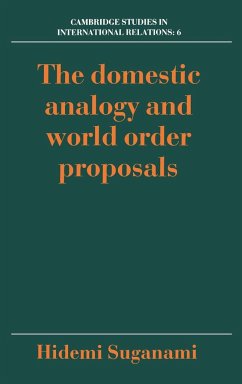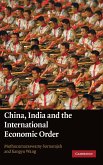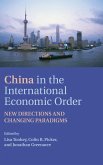How profitable is it for world order to transfer the legal and political principles, which sustain order within states to the domain of relations between states? This has been and continues to be one of the central and most contentious questions in the study of international relations. The term 'domestic analogy' refers to the idea that inter-state relations are amenable to the same type of institutional control as the relations of individuals and groups within states. In this study Dr Suganami discusses the role the domestic analogy has played in proposals about world order, peace, justice and welfare in the period since 1814. As well as analysing the ideas of major writers on international law and relations, Hidemi Suganami examines the creation of the League of Nations, the United Nations and its agencies, and the European Community - all of which have sprung from the domestic analogy. The domestic analogy and world order proposals makes an important contribution to the history of ideas about world order, exploring how this particular mode of reasoning about international relations has evolved against changing historical backgrounds.
Table of contents:
Acknowledgements; Introduction; 1. The domestic analogy debate: a preliminary outline; 2. The range and types of the domestic analogy; 3. Some nineteenth-century examples; 4. Contending doctrines of the Hague Peace conferences period; 5. The impact of the Great War; 6. The effect of the failure of the league on attitudes towards the domestic analogy; 7. The domestic analogy in the establishment of the United Nations; 8. The domestic analogy in contemporary international thought; 9. The domestic analogy and world order proposals: typology and appraisal; Conclusion; Notes; References; Index of personal names; Subject index.
Hinweis: Dieser Artikel kann nur an eine deutsche Lieferadresse ausgeliefert werden.
Table of contents:
Acknowledgements; Introduction; 1. The domestic analogy debate: a preliminary outline; 2. The range and types of the domestic analogy; 3. Some nineteenth-century examples; 4. Contending doctrines of the Hague Peace conferences period; 5. The impact of the Great War; 6. The effect of the failure of the league on attitudes towards the domestic analogy; 7. The domestic analogy in the establishment of the United Nations; 8. The domestic analogy in contemporary international thought; 9. The domestic analogy and world order proposals: typology and appraisal; Conclusion; Notes; References; Index of personal names; Subject index.
Hinweis: Dieser Artikel kann nur an eine deutsche Lieferadresse ausgeliefert werden.








